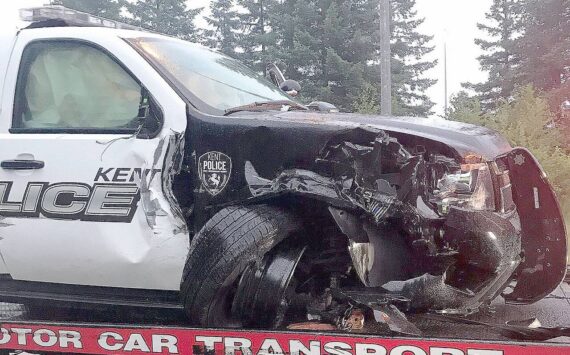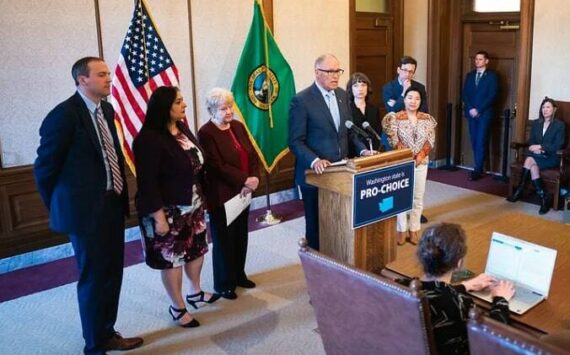A new report recommends stripping the state Transportation Commission of its major planning chores and giving them to the Department of Transportation, which is better funded and equipped to carry out the work.
It also suggests other duties of the citizen commission such as setting ferry fares and tolls, and holding periodic public meetings on transportation issues, could be handed off as well, which might not leave enough tasks to justify the panel’s continued existence.
The draft report doesn’t recommend abolishing the commission because its authors had been specifically told not to consider that step. But it’s the conclusion they shared when they presented their findings with lawmakers last week.
“When you take away these things we suggest you are left with a somewhat crippled agency,” said Joey Longley, of Gateway Partners of Texas. “We were obviously hampered by not being able to give you the recommendation we probably would have had we been allowed to, which is to abolish this agency and move the functions elsewhere.
“That was not our charge,” he said. “We were not allowed to do that so we didn’t.”
Those comments, made in a public hearing to the Joint Transportation Commission, exceeded the scope of the contract, said Reema Griffith, executive director of the state transportation commission.
“They were told abolishment was not on the table,” she said. “We were hoping it would be a more productive report. We think there are a lot of ways to improve the process without gutting the process.”
The seven-member commission used to be at the epicenter of transportation policy in Washington. It hired the head of the Department of Transportation and oversaw the agency. In 2005, lawmakers made it a cabinet agency and put the governor in charge of appointing the transportation secretary.
Earlier this year, the Legislature earmarked $100,000 in the state budget for an assessment of the panel’s roles and responsibilities and how commissions operate in other states. They sought suggestions for improvements and made clear the study should not delve into the legislated duties of setting ferry fares and highway tolls.
Morningside Research and Consulting of Austin, Texas was selected to prepare the report.
Its authors concluded the chief challenge is an overlap of planning duties between the commission and transportation department and this causes confusion in the agencies and the public. They recommend ending the duplication. They also lauded the commission’t outreach role. But they questioned the value of what is learned, noting that lawmakers often don’t heed the advice.
“I thought it was pretty straightforward,” said Rep. Judy Clibborn, D-Mercer Island, following the hearing. She is chairwoman of the Joint Transportation Committee which is made up of Democrats and Republicans from the House and Senate. “They identified redundancies. They pointed out (gathering) public input is still a major role for the transportation commission.”
Carrying out their recommendations to strip away planning work and farm out other duties would raise the question of the commission’s future, she said.
“I think they were pointing out it could be replaced. I think that it’s an option that is on the table,” she said. “I don’t think a decision has been made.”
Griffith said the planning carried out by the commission and agency “are not overlapping. They’re not redundant in our view. It’s a shared responsibility.”
Consultants will spend the next few days fine-tuning their draft assessment based on comments made in the hearing and received in writing from various stakeholders. The final report is due by Dec. 4 and will be discussed at the legislative panel Dec. 14 meeting.
Griffith said the commission will issue a formal statement when the final report comes out.
Meanwhile, lawmakers on the committee said they want to clear up confusion on planning while preserving the commission’s role in speaking with residents. Whether that along with setting ferry fares and tolls is enough to keep it going is up to debate.
“We need to look at what are they actually doing,” said Rep. Mark Harmsworth, R-Mill Creek, who also serves on the House Transportation Committee. “It would seem to make sense.”
Rep. Dave Hayes, R-Camano Island, said the commission should not be abolished. It is a vital means for residents to weigh in on the state’s pressing transportation challenges. And, he said in his experience, commissioners are more responsive to what they hear than are those at the Department of Transportation.
“The commission is a heck of a lot better at listening to the citizens,” he said. WSDOT has “demonstrated to me time and again they are not interested in seeking and taking advice from the community.”
Hayes said he was concerned the study was “very limited” in its scope and really didn’t look at the alternative of beefing up the panel’s capabilities.
“If we’re going to use them, let’s use them correctly and give them the resources to do what we want them to do,” he said.







